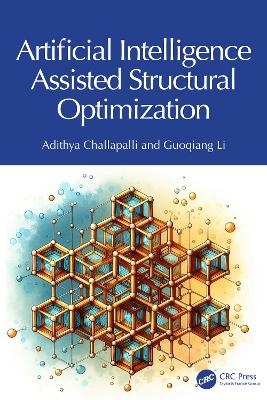
Artificial Intelligence Assisted Structural Optimization
CRC Press (Verlag)
978-1-032-50885-6 (ISBN)
- Noch nicht erschienen (ca. Februar 2025)
- Versandkostenfrei
- Auch auf Rechnung
- Artikel merken
Discussing both machine learning and design analysis in detail, this book enables readers to optimize their designs using a data driven approach. This book discusses the basics of the materials utilized, for example shape memory polymers, and the manufacturing approach employed, such as 3D or 4D printing. Additionally, the book discusses the use of forward design and inverse design frameworks to discover novel lattice unit cells and thin-walled cellular unit cells with enhanced mechanical and functional properties such as increased mechanical strength, heightened natural frequency, strengthened impact tolerance, and improved recovery stress. Inverse design methodologies using generative adversarial networks are proposed to further investigate and improve these structures. Detailed discussions on fingerprinting approaches, machine learning models, structure screening techniques and typical Python codes are provided in the book.
The book provides detailed guidance for both students and industry engineers to optimize their structural designs using machine learning.
Dr. Guoqiang Li received his BS, MS, and PhD degrees from Hebei University of Technology, Beijing University of Technology, and Southeast University, respectively, all in Civil Engineering. He received his postdoc training in Mechanical Engineering at Louisiana State University (LSU). He is the Major Morris S. & DeEtte A. Anderson Memorial Alumni Professor and Holder of the John W. Rhea Jr. Professorship in Engineering, in the Department of Mechanical & Industrial Engineering at LSU. He is also serving as the Associate Vice Provost in the Graduate School at LSU. Concurrently, he is a Distinguished Research Professor in the Department of Mechanical Engineering at Southern University, Baton Rouge, Louisiana. His research interest is in the broad area of engineering materials, engineering structures, manufacturing, and engineering mechanics. He currently serves as an Associate Editor for ASCE Journal of Materials in Civil Engineering, editorial board member for the journal of Scientific Reports, Associate Editor for journal of Cleaner Materials, and Specialty Editor of "Solid and Structural Mechanics" in Mechanical Engineering. He has received over 40 awards and recognitions for his research, mentoring, and services. Adithya Challapalli received his MS from University of North Texas (UNT) in Mechanical and Energy Engineering and PhD degrees from Louisiana State University (LSU) in Materials Engineering, Engineering Science. Concurrently, he is working as a project engineer in Graphic Packaging International focusing on optimizing sustainable and renewable products.
1. Introduction to structures with complex geometrical configurations 2. Structural optimization 3. Introduction to machine learning assisted structural optimization 4.Structural optimization of biomimetic rods using machine learning regression 5. Structural optimization of lattice structures 6. Inverse Machine Learning Using Generative Adversarial Networks 7. Design and Optimization of Mechanical Metamaterials Using Correlation Analysis Data Generation and Fingerprinting of Thin-Walled Cellular Unit Cells 8. Summary and Future Perspectives
| Erscheint lt. Verlag | 27.2.2025 |
|---|---|
| Zusatzinfo | 15 Tables, black and white; 42 Line drawings, black and white; 44 Halftones, black and white; 86 Illustrations, black and white |
| Verlagsort | London |
| Sprache | englisch |
| Maße | 152 x 229 mm |
| Themenwelt | Informatik ► Theorie / Studium ► Künstliche Intelligenz / Robotik |
| Technik ► Bauwesen | |
| Technik ► Elektrotechnik / Energietechnik | |
| ISBN-10 | 1-032-50885-X / 103250885X |
| ISBN-13 | 978-1-032-50885-6 / 9781032508856 |
| Zustand | Neuware |
| Haben Sie eine Frage zum Produkt? |
aus dem Bereich


